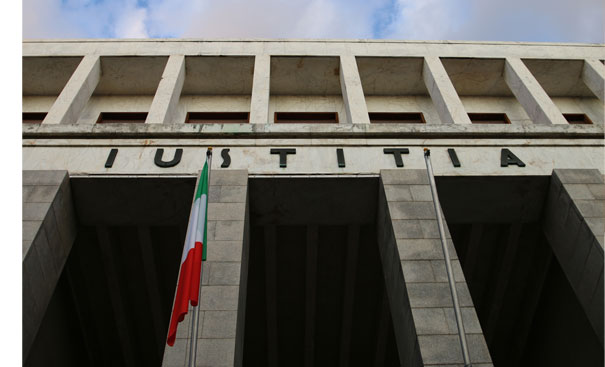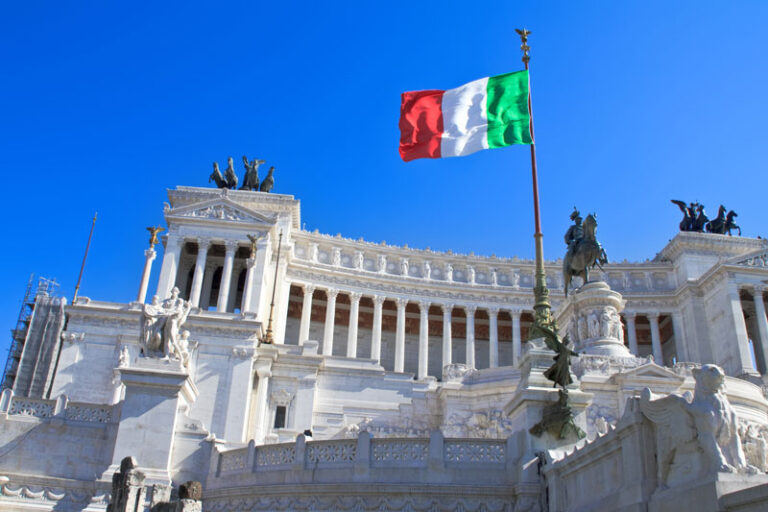
Getting dual Italian citizenship is a great thing that can give you more options for a fruitful life. Not only do you have the chance to live and work in Italy, but you also have access to all the EU and its many opportunities. When you obtain Italian citizenship through marriage, divorce may become a problem for you in some scenarios.
Divorce after citizenship has a different meaning than gaining citizenship after divorce. The process can be very complicated which is why it helps to understand and clear up any questions before you apply for citizenship after divorce or divorce after citizenship.
Citizenship after divorce and applying for citizenship after divorce are a bit different. To illustrate your rights, here are a few scenarios.
Married to an Italian Citizen: Can You Stay in Italy After Divorce?
First, let’s cover what happens if you have married an Italian citizen and are living in Italy. In the Italian Legislative Decree, it states that any non-EU citizen who married an EU-citizen (including an Italian or someone that has a long-term permit to stay) is allowed to request for a permit to stay based on family reasons. Incidentally, this right is also granted to same-sex couples only if they officially formed a civil union in their relationship.
What if You Separate First and Then Divorce?
Things get a little more complex on this topic depending on the length of your marriage as well as if you have children. In the 12th article of the Decree (30/2007), a divorce does NOT automatically mean you lose your right to stay in Italy if you’re not a member of the EU if you have met the residency requirement and have obtained a permanent residence card for yourself or family members if you have established more than 5 years of residence in Italy. Depending on your circumstances you may be required to present proof of residency.
If you haven’t been in Italy that long, do know that there are a few other instances where you are covered for your stay in Italy after divorce. Keep reading to determine if any of these scenarios apply to you:
- You have been married for a minimum of 3 years, one spent in Italy, prior to submitting your application for divorce.
- As the non-EU spouse, you have custody of the children you had with your Italian spouse and agree to keep those children residing in Italy.
- You are a victim of familial crimes against you by your Italian spouse and are participating in a criminal trial, or you have already proceeded with the trial and your Italian spouse has been charged as guilty.
- During the divorce ruling, the judge awarded you with visitation rights in Italy, as long as the judge deciding on the divorce case agrees that visits to your children must happen in Italy.
In each of these instances, there is no need to be married 5 years. Your divorce from your Italian spouse will not impact your ability to keep your permit to stay. You can also renew that permit as per the decision of the Italian Supreme Court ruling of no. 19893/2010.
However, there is just one thing to note in these cases. If you want to keep your permit or renew it, you must be employed or self-employed or have plenty of economic resources for your children. These resources can also include alimony. Having proof that you have the financials in these scenarios will allow you to retain Italian citizenship even after divorce.
Can I Apply for Italian Citizenship After Divorce?
The answer to applying for citizenship after divorce is also a little dependent on when you were married. For foreign women that were married to an Italian man before April 26, 1983, you may still be approved for a dual Italian citizenship even if you are no longer married by way of divorce or have been widowed. It will require meeting with your local Italian consulate to determine your eligibility.
For anyone, man or woman, that has married an Italian citizen after April 26, 1983, then you might not be able to apply for citizenship after the divorce. Should you divorce during the application for Italian citizenship process, you will not be able to obtain citizenship as you must be married at the time it is granted.
It’s not a lost cause though even if you don’t meet those requirements. If you have your marriage record and a decree granting your Italian citizenship that was issued by the Ministry of the Interior, it should be possible to still enjoy a life in Italy. According to Italian Consolidated Law on Immigration, non-EU citizens can also convert their residence permits granted for familial reason to other types of residence permits. Work or study purposes also apply and can facilitate this change, allowing you to keep your status. It should be noted though that this doesn’t happen automatically. You’ll need to make a proper request to have your permit sorted out.
Should you choose legal separation from your spouse and make it official through divorce, you can still retain your permit through no. 19893/2019 of the Italian Supreme Court if you were married for at least 3 years duration and spent at least one of those years married together in Italy before you apply for the divorce or even annulment.
As the case for divorce and retaining your Italian citizenship or applying for it post-divorce, there are often many questions. Not every situation is the same and we can help you determine if you can keep your status or change it. The law is on your side in abusive situations so don’t feel like you must stick with something that puts you in harm’s way just to hold onto your dual citizenship through your Italian spouse. Contact our IDC team today and we’ll help you properly navigate this process.
This page was last updated by Jason LoPresti
Additional Resources:
- Dual citizenship Italy and Canada
- Get an Italian passport
- Benefits list of Italian dual citizenship
- Italian dual citizenship 1948 case
- Dual citizenship Italy requirements
- How to become a dual citizen USA and Italy
- Applying for Italian citizenship
- Getting Italian citizenship through great grandparents
- Italian citizenship through jure sanguinis
- Dual citizenship Italy and UK
- Dual citizenship Italy and Brazil, and South America
- Dual citizenship Italy and Australia
- Dual citizenship Italy and South Africa





